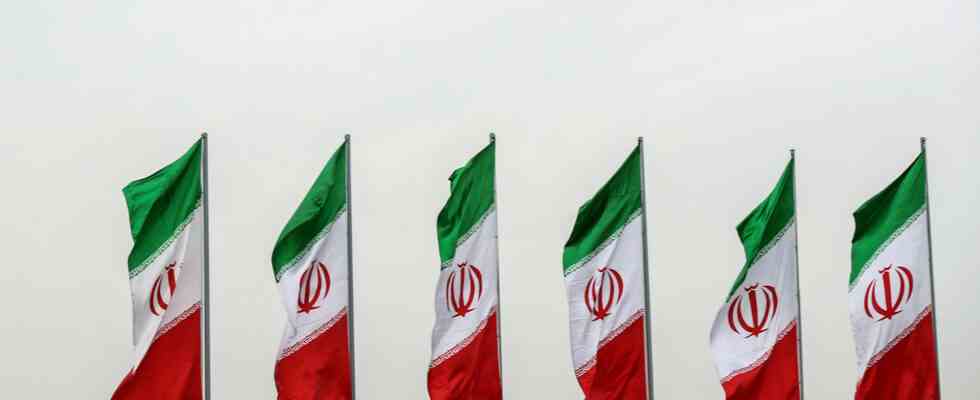Status: 09.08.2022 4:10 p.m
United States sanctions have weighed heavily on the Iranian economy for years. In order to circumvent them, the Islamic Republic now wants to carry out an import transaction with a cryptocurrency for the first time.
Iran placed its first cryptocurrency import order this week, officials said. This is reported by the semi-official agency Tasnim. The order is worth ten million dollars. It was not disclosed which digital money was to be used in the transaction.
The transaction is said to be a first step in circumventing US sanctions that have been slowing down the Islamic Republic’s economy for several years. “By the end of September, the use of cryptocurrencies and smart contracts in foreign trade with destination countries will be widespread,” an official from the Ministry of Industry, Mines and Trade tweeted.
With settlement via digital assets, Iran is trying to circumvent the dollar-dominated global financial system. Business could also be done with other countries that are also restricted by US sanctions – such as Russia.
Crypto payments problematic
According to a study from last year, 4.5 percent of the dominant cryptocurrency Bitcoin was created in Iran. One reason for this is the comparatively cheap electricity, since so-called “mining” consumes a lot of electricity. Digital prospecting is thus an important source of foreign exchange for the country. Cryptocurrency is “mined” by computers, with high-performance computers handling a wealth of complicated arithmetic operations.
However, the prices of cryptocurrencies such as Bitcoin fluctuate greatly and therefore lack an essential prerequisite for a reliable means of payment. For the cryptocurrency market, the current development is likely to be double-edged. On the one hand, acceptance by the state is generally welcomed by market participants. The case of Iran, however, should be another argument for Western governments to further advance their regulation of cryptocurrencies, which could lead to the ban on transactions.
Movement in the Nuclear Controversy
In 2018, then US President Donald Trump withdrew from the nuclear deal with Iran and reintroduced tough sanctions. About a year later, Tehran began violating the conditions.
Efforts to revive the international agreement have recently picked up speed again. The European Union presented a proposal yesterday to restore the 2015 pact. It was initially unclear whether a breakthrough was within reach. The US expressed its readiness for a speedy conclusion, while Iran pointed to the need for further internal consultations.

